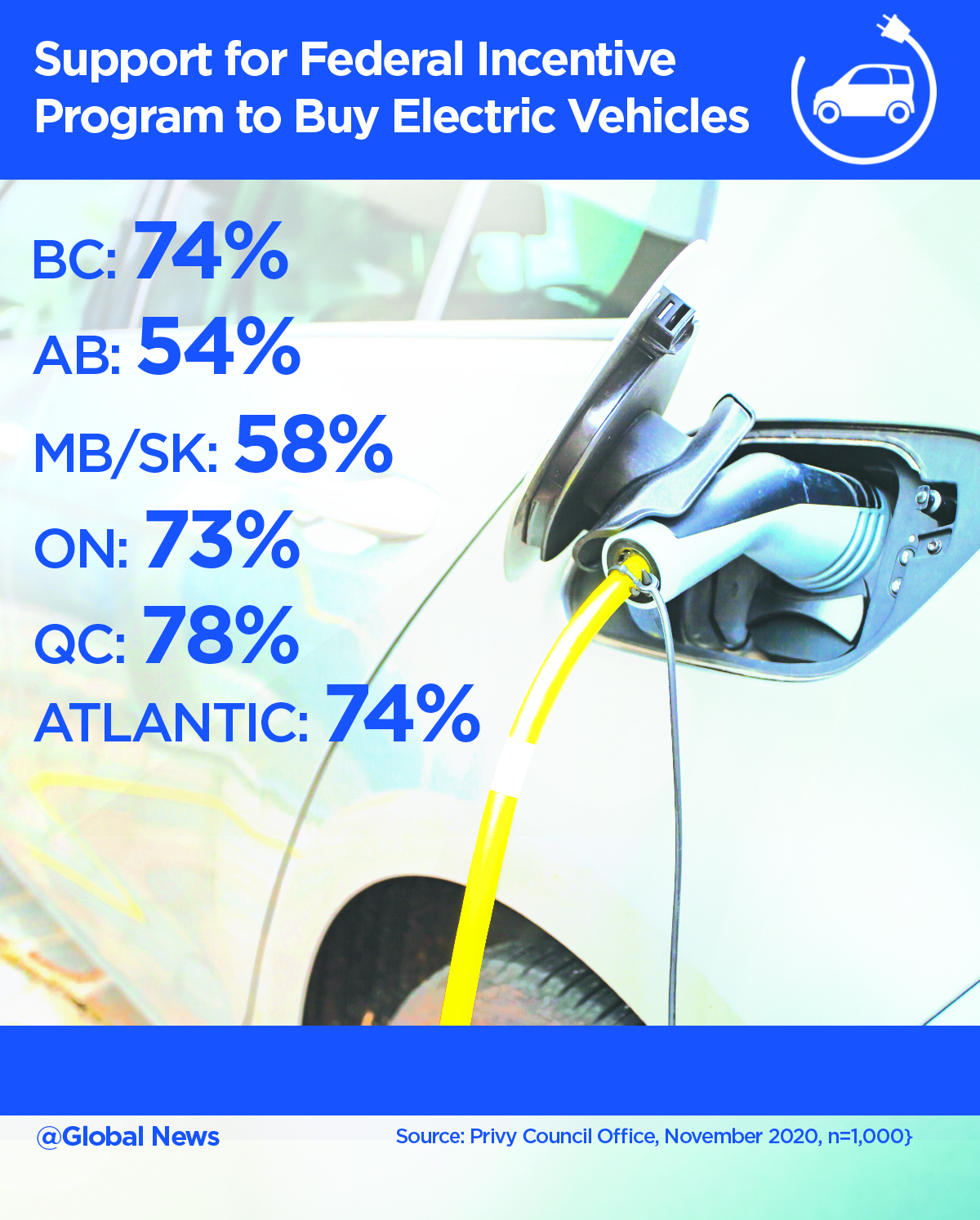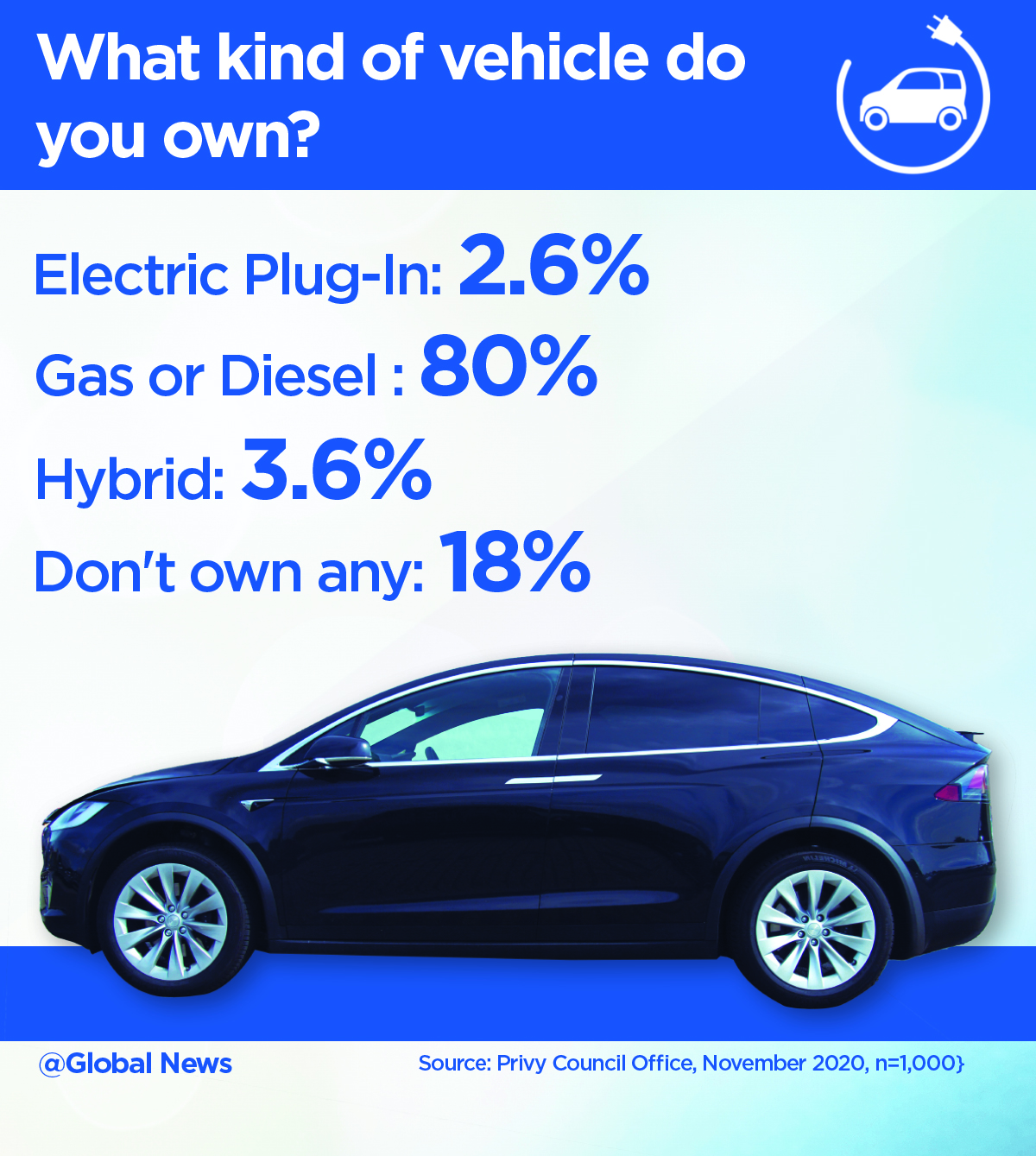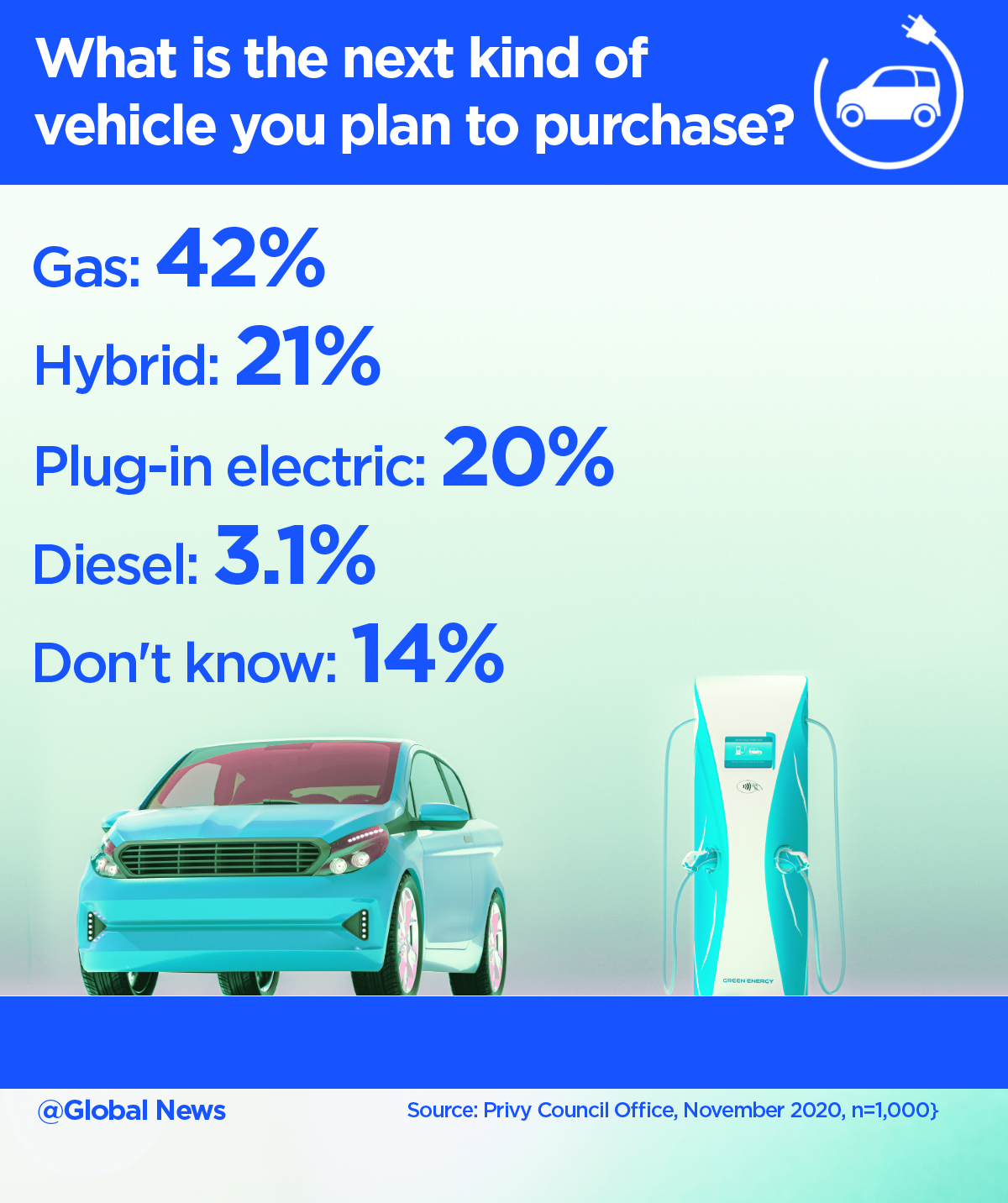Internal government polling commissioned by the Privy Council Office (PCO) has found strong support in every region of the country for continued financial subsidies to get more Canadians into plug-in electric vehicles.

The data showed that federal financial support for consumers buying electric vehicles is a vote winner, particularly in the election battleground provinces of Quebec, Ontario and British Columbia. But even in Alberta, a majority of respondents support federal cash going to electric vehicles.
The PCO gathered the data as the Prime Minister’s Office (PMO) began deliberations on the 2021 federal budget, which Deputy Prime Minister and Finance Minister Chrystia Freeland will table later this year. Liberal insiders have indicated they believe the budget will be the kind of document the Trudeau Liberals will be prepared to campaign on in a spring election should the budget fail to win the confidence of a majority of MPs in the House of Commons.
The polling by the PCO — the bureaucratic arm of government that supports the work of the Prime Minister’s Office — was done in late November and again in early December, part of the PCO’s weekly public opinion surveys. Copies of the raw polling data were obtained by Global News using access to information laws.
In addition to being popular with voters, subsidies that drive more consumers to purchase electric vehicles would help Ottawa meet its commitments to cut greenhouse gas emissions.
The polling data gathered by the PCO shows that, despite subsidies for electric and hybrid vehicles that have existed since the days of the Harper government, there is not yet broad market penetration of plug-in electric vehicles in Canada. Just 2.6 per cent of those responding to the PCO survey said they owned an electric plug-in vehicle versus 80 per cent who owned a vehicle with a gas-powered engine.
Since the spring of 2019, the Trudeau government has paid out a subsidy of up to $5,000 to consumers who buy zero-emission vehicles and is in the midst of a five-year, $130-million program to help build charging stations across the country.
The PCO poll found that the two biggest barriers to buying an electric vehicle were cost — 43 per cent said they believed EVs were too expensive — and lack of infrastructure — 15 per cent said they did not believe there were enough charging stations.
The PCO poll says only 37 per cent of Canadians were aware that the federal government was running an incentive, though most did not know how to apply for the program. That suggests that Ottawa, in the budget, may commit to a wider public relations effort to tell Canadians about the subsidy.
And the timing may be right for such a program.
The PCO poll found that 20 per cent of respondents said the next vehicle they purchase will likely be an electric vehicle, while 21 per cent said they would probably purchase a hybrid gas-electric vehicle.
The internal polling was done by the PCO’s pollster-of-record, Elemental Data Collection Inc. of Ottawa, which olds a one-year contract worth $1.5 million to do the weekly polling on behalf of the PCO.
The PCO is responsible for choosing the questions and often solicits suggestions for the weekly questions from senior bureaucrats in other government departments. Former PMO staffers say the questions would almost certainly be vetted and modified by political staff, likely the PMO’s research director Dan Arnold.
The raw polling data obtained by Global News does not provide detailed information about the pollster’s methodology, specific dates when the poll was in the field or the pollster’s information on accuracy.
But it is clear from the documents provided that the poll sample size was 1,000 people and that the pollster screened for the kind of demographic data — language, region, gender, age and so on — that allowed the pollster to weight the results to mirror the actual makeup of the Canadian population.
A PCO spokesperson confirmed this week that Elemental uses live-agent telephone polling when it does its work for the PCO.
The PCO — like all government departments — is prohibited by law from asking partisan questions such as vote intention of respondents or even who the respondent voted for in the last election. As a result, it is not possible to break out responses to individual questions by party preference.








Comments